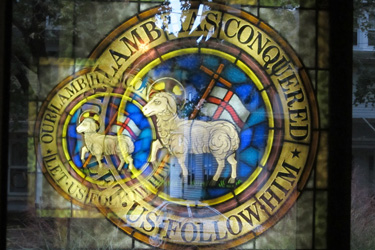Twenty-first Sunday after Pentecost
Belonging to God
The Pharisees and the Herodians plot together to trip Jesus up on a simple question about paying taxes. Of course, one should pay taxes you might say and, in most circumstances, you would be correct. As a country we work together sharing resources to support our people’s welfare. But the tax Jesus is being asked about is a tax imposed by an occupying government, Rome, upon the occupied nation of Israel. This tax is paid to an emperor, whose title indicates he understands himself as divine, “Tiberius Caesar, August Son of the Divine Augustus.” Oh no! You might say, no one should pay homage or taxes to a blasphemer, claiming to be a god.
It is complicated. Jesus asks for a Roman coin, he examines it and asks, “Whose head is on this? And whose title?” The title, as we have noted, is important. “The emperor’s,” the questioners answer.
Jesus then gives his often-quoted answer: “Give to the emperor the things that are the emperor’s and to God the things that are God’s” (Matthew 22:21).
The amazing thing about this answer is that it forces us to ask ourselves, What in our lives does not belong to God? If we are honest, the answer is nothing—our very life is a gift from God.
But it is true also that we live within and under unjust societal structures—structures and systems imposed upon us that may not be godly. I think that like Jesus we have to be a bit cagey and stealthy, examining clearly whose head and title we are bound to. Like Jesus, we need to ask those mindful questions of those who try to trick us: To whom do we as believers in Jesus really belong? What does it mean when we claim to belong to God?
Amy Gohdes-Luhman, pastor, Waconia Moravian Church
Waconia, Minnesota

